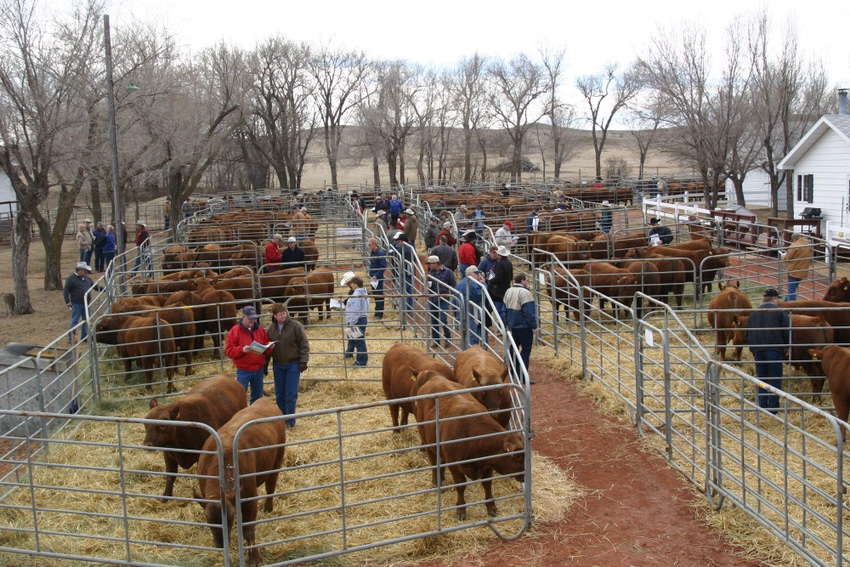While COVID-19 has changed how seedstock suppliers sell this year’s bull crop, it hasn’t changed the need to buy bulls. Here's how seedstock operations are adapting.

While the whole world has been turned upside down, the rhythm of ranching continues. Cow-calf producers still must get cows bred and that means they must buy bulls.
BEEF did a quick survey of the ranches listed in the Seedstock 100 and Seedstock Directory, asking how seedstock producers are adapting to a COVID-19 sales season. Here’s what we learned:
It appears many bull sellers elected to stay with their original sale date and hold the auction. However, normal routines were discarded in an effort to keep social distancing and buyer safety in mind. Bull sellers cancelled activities they typically wrap other activities into their auction, like seminars, tours, meals and other activities.
Video and internet auctions have become more popular over the last several years, and the 2020 spring bull sale season may be the tipping point for that venue to become a commonplace way to buying and selling bulls. All the seedstock sellers who responded to BEEF’s questions said they will use video to offer their bulls for sale. Most have been doing so already, so making that jump wasn’t difficult.
“We have been using Superior Productions for the last six years. In times like this, we are very glad we have that track record to assist our customers,” said Brett DeBruycker with DeBruycker Charolais, Dutton, Mont.
And all bull sellers who did hold auctions worked hard to subscribe to social distancing guidelines for the buyers, asking non-buyers to remain outside and asking those in the bleachers to spread out. In addition, buyers could contact their genetics supplier and have them or a representative buy bulls sight unseen, with a full guarantee.
“As I have spoken with numerous customers, we understand and appreciate your interest in buying cattle and your concern for the health and safety of your family and our nation,” said Ryan Ludvigson, Ludvigson Stock Farms, Billings, Mont.
Likewise, Fink Angus Genetics held their auction and offered video attendance, spread the buyers out and offered buying service for their customers. Others, like Wulf Cattle Co., Morris, Minn., have gone to online sales only. Jorgensen Land and Cattle in Ideal, S.D., No. 1 on the Seedstock 100 list, has also gone digital with its bull sales, encourages people to come and look at the bulls in advance, with an appointment.
Breed associations are also helping out. Check the association website of the breed of bulls you buy for updated information on sales.
Click here for a list of American Hereford Association cancelled and rescheduled events.
Click here for a list from the American Angus Association of cancelled or rescheduled events.
Click here for a list of Brangus cancelled or rescheduled events.
Everyone gave a nod to the challenges at hand. “We are in unique and uncertain times due to the COVID-19 virus concerns. We can see this in nearly every part of our lives,” Lee Leachman, Leachman Cattle of Colorado, Wellington, Colo., wrote his customers.
“Nonetheless, we must do our best to carry on, for we know that we will overcome these current challenges. Cattle markets will recover, businesses will re-open, kids will go back to school and life as we knew it prior to January of 2020 will return.”
Vea Bea Thomas of Thomas Ranch at Harrold, S.D., summed the intent of the seedstock producers we talked with by simply saying, “We take COVID-19 seriously and want to what is right.”
About the Author(s)
You May Also Like



